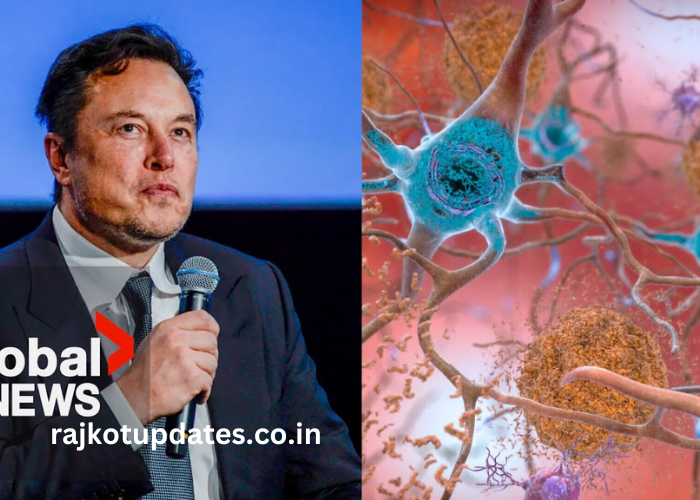In 2022, Elon Musk’s Neuralink made headlines with its ambitious plan to begin the implantation of brain chips in humans. This groundbreaking development aims to merge human cognition with advanced technology, paving the way for revolutionary advancements in medicine, neuroscience, and human-computer interaction. In this article, we explore the significance of Neuralink’s technology, the implications for society, and the potential challenges ahead.
What is Neuralink?
Neuralink is a neurotechnology company co-founded by Elon Musk in 2016. The company’s mission is to develop brain-computer interfaces (BCIs) that can help treat neurological conditions and, ultimately, enhance human cognitive abilities. By bridging the gap between humans and machines, Neuralink aims to revolutionize how we interact with technology.
The Vision Behind Brain Chips
Elon Musk envisions a future where brain chips could treat a range of neurological disorders, including Alzheimer’s disease, Parkinson’s, and spinal cord injuries. By enabling direct communication between the brain and external devices, Neuralink seeks to improve the quality of life for individuals suffering from these conditions.
The Technology Behind Neuralink
Neuralink’s technology consists of ultra-thin, flexible brain chips that can be implanted into the brain with minimal invasiveness. These chips are designed to record and stimulate neural activity, allowing for seamless interaction between the brain and computers. The innovative design aims to reduce the risk of damage to brain tissue compared to traditional electrodes.
The 2022 Milestones
In 2022, Neuralink announced significant milestones, including successful animal trials that demonstrated the functionality of its brain chips. These trials involved implanting the devices in pigs, showcasing their ability to monitor neural activity in real-time. The positive results bolstered the company’s confidence in moving forward with human trials.
Regulatory Approvals and Ethical Considerations
Before proceeding with human implantation, Neuralink must obtain regulatory approvals from health authorities like the FDA. The approval process involves rigorous safety and efficacy assessments. Additionally, ethical considerations surrounding brain chip technology raise important questions about privacy, consent, and potential misuse.
Potential Medical Applications
Neuralink’s brain chips hold promise for various medical applications. They could potentially help restore movement in paralyzed individuals, provide real-time monitoring for neurological disorders, and even assist in memory enhancement. The medical community is watching closely as these applications could revolutionize treatment options.
Enhancing Human Cognition
Beyond medical uses, Musk envisions brain chips that can enhance human cognition. By augmenting our cognitive abilities, such as memory and processing speed, these chips could fundamentally change the way humans interact with technology and each other. This raises intriguing possibilities and ethical dilemmas.
The Public’s Reaction
The announcement of Neuralink’s plans to implant brain chips in humans has sparked widespread discussion and debate. While many are excited about the potential benefits, others express concerns regarding safety, privacy, and the long-term implications of merging human biology with technology. Public perception will play a crucial role in shaping the future of such innovations.
Challenges Ahead
Despite the promising advancements, Neuralink faces several challenges. These include technical hurdles related to the implantation process, ensuring long-term biocompatibility of the chips, and addressing the ethical concerns that arise from altering human cognition. Overcoming these challenges will be vital for the success of Neuralink’s mission.
The Future of Brain-Computer Interfaces
Neuralink’s work could pave the way for the broader adoption of brain-computer interfaces across various sectors, including education, entertainment, and communication. As technology evolves, the potential applications may expand, leading to new ways for humans to interact with machines and each other.
Collaborations and Partnerships
To achieve its ambitious goals, Neuralink may seek collaborations with research institutions, universities, and medical organizations. Partnerships could facilitate research, share knowledge, and accelerate the development of safe and effective brain-chip technology.
The Role of AI in Neuralink’s Vision
Artificial intelligence (AI) will play a crucial role in Neuralink’s endeavors. By integrating AI algorithms with brain-chip technology, the potential exists for advanced data analysis, real-time feedback, and enhanced communication capabilities. This synergy could unlock unprecedented possibilities in both healthcare and human enhancement.
Looking Ahead: What to Expect
As Neuralink progresses toward human trials, expectations are high. Continued advancements in neuroscience, engineering, and ethical frameworks will be essential for ensuring the responsible development and deployment of brain chips. The next few years will be pivotal in determining how this technology is integrated into society.
Conclusion
Elon Musk’s Neuralink is at the forefront of a groundbreaking journey to implant brain chips in humans. With the potential to revolutionize medicine, enhance human cognition, and reshape our relationship with technology, the implications of this technology are vast. As Neuralink navigates the challenges of regulatory approval, ethical considerations, and technical hurdles, the world watches closely.
The advancements in brain-computer interfaces could signify a new era in human enhancement, promising to transform not only healthcare but also the very nature of human experience. RajkotUpdates.News remains committed to keeping readers informed about these exciting developments and their implications for the future.



